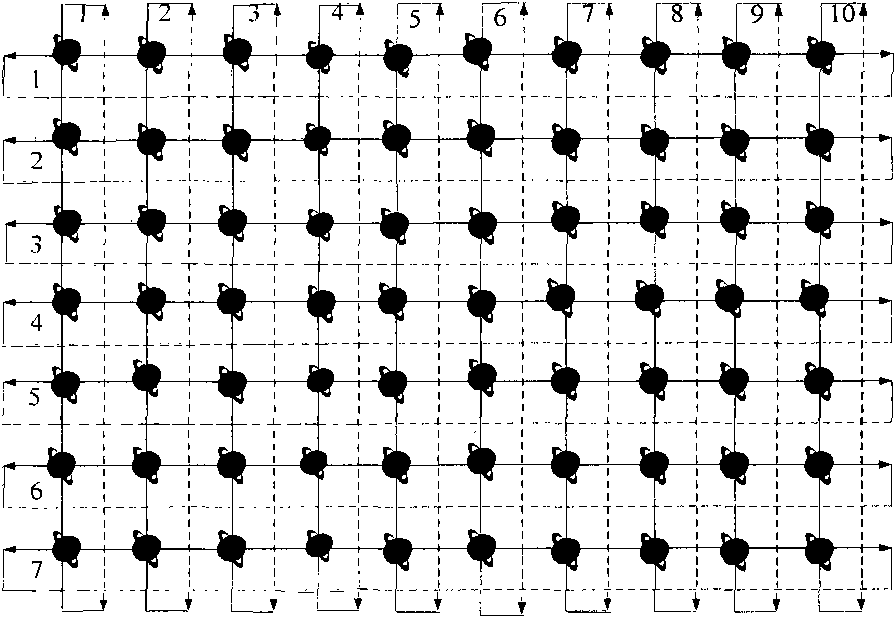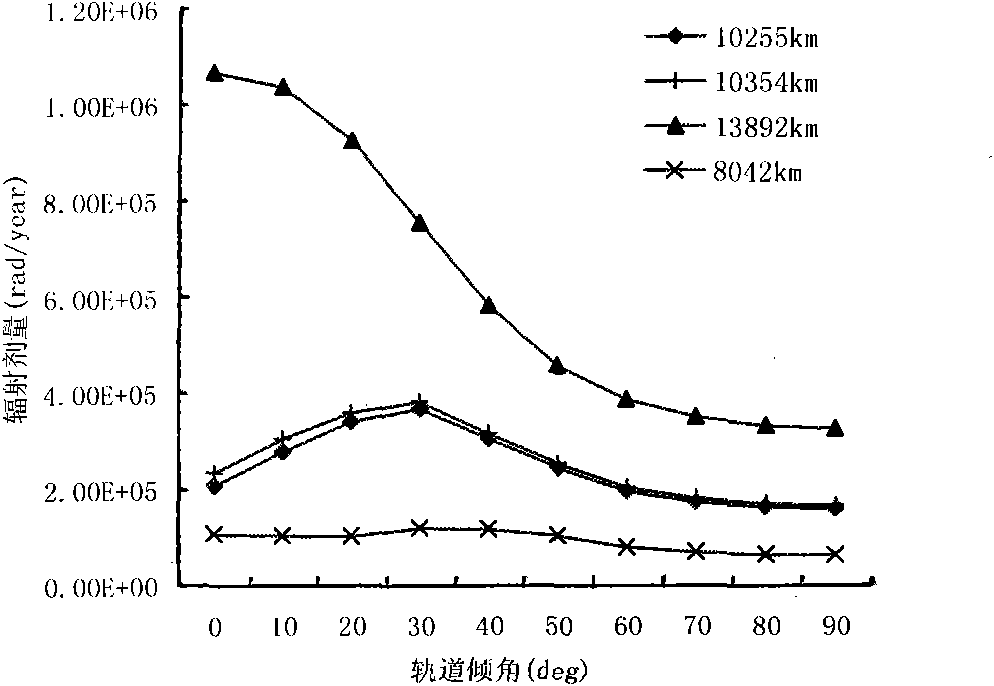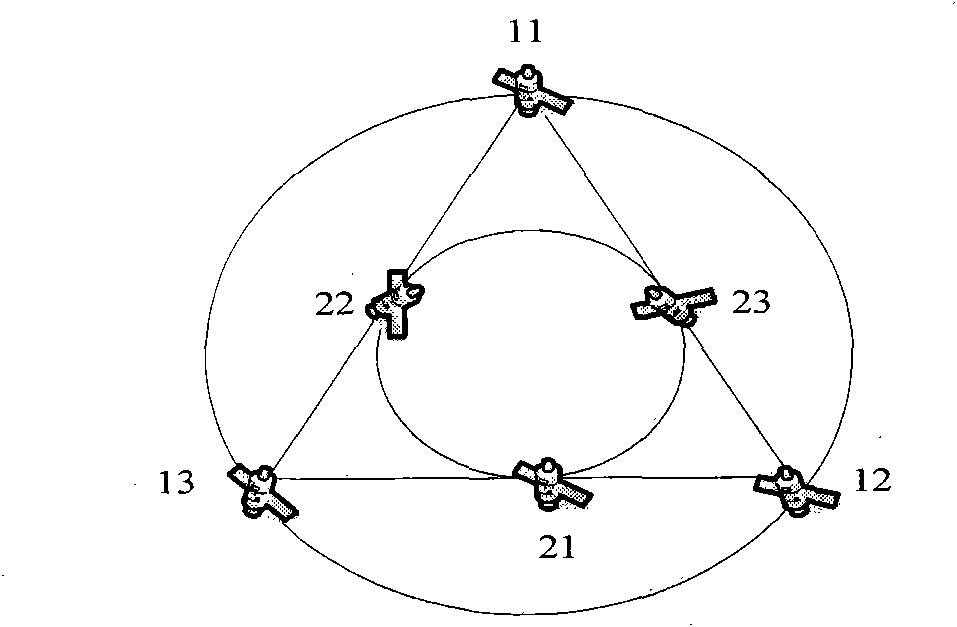Low-orbit/middle-orbit double-layer satellite optical network structure system and design calculation method
A network structure and low-orbit satellite technology, applied in the field of satellite network structure, can solve problems such as large network delay and no consideration of inter-satellite laser link characteristics, and achieve the effects of reducing handover, strengthening implementation management, and simplifying network routing
- Summary
- Abstract
- Description
- Claims
- Application Information
AI Technical Summary
Problems solved by technology
Method used
Image
Examples
Embodiment 1
[0117] Let H be the altitude of the satellite, R be the radius of the Earth, and ε be the elevation angle of the ground station to the satellite. exist Figure 8 In the schematic diagram of the coverage zone shown, two satellites form a coverage zone, θ is the radius of a single satellite coverage circle, and its value is:
[0118] ①, θ=arccos[Rcosε / (R+H)]-ε
[0119] Ψ is the half-angle of the coverage zone, and 2π / S is the distance between two satellites in the orbital plane, which is known from the spherical right triangle theorem:
[0120] ②、Ψ=arccos[cosθ / cos(π / S)]
[0121] The satellite positions of the orbit B closest to the reference satellite (ahead of satellite A) are:
[0122] ③,
[0123] The constraints to satisfy continuous coverage are:
[0124] ④, α′≤Ψ+arccos[cosθ / cosδ B ]
[0125] Using the spherical right triangle theorem, we know that the actual right ascension difference:
[0126] ⑤、sinα=sinα′ / sini
[0127] The relationship between the actual phase ...
Embodiment 2
[0135] Let H be the altitude of the satellite, R be the radius of the Earth, and ε be the elevation angle of the ground station to the satellite. exist Figure 8 In the schematic diagram of the coverage zone shown, two satellites form a coverage zone, θ is the radius of a single satellite coverage circle, and its value is:
[0136] ①, θ=arccos[Rcosε / (R+H)]-ε
[0137] Ψ is the half-angle of the coverage zone, and 2π / S is the distance between two satellites in the orbital plane, which is known from the spherical right triangle theorem:
[0138] ②、Ψ=arccos[cosθ / cos(π / S)]
[0139] The satellite positions of the orbit B closest to the reference satellite (ahead of satellite A) are:
[0140] ③,
[0141] The constraints to satisfy continuous coverage are:
[0142] ④, α′≤Ψ+arccos[cosθ / cosδ B ]
[0143] Using the spherical right triangle theorem, we know that the actual right ascension difference:
[0144] ⑤、sinα=sinα′ / sini
[0145] The relationship between the actual phase ...
PUM
| Property | Measurement | Unit |
|---|---|---|
| Inclination | aaaaa | aaaaa |
Abstract
Description
Claims
Application Information
 Login to View More
Login to View More - R&D
- Intellectual Property
- Life Sciences
- Materials
- Tech Scout
- Unparalleled Data Quality
- Higher Quality Content
- 60% Fewer Hallucinations
Browse by: Latest US Patents, China's latest patents, Technical Efficacy Thesaurus, Application Domain, Technology Topic, Popular Technical Reports.
© 2025 PatSnap. All rights reserved.Legal|Privacy policy|Modern Slavery Act Transparency Statement|Sitemap|About US| Contact US: help@patsnap.com



